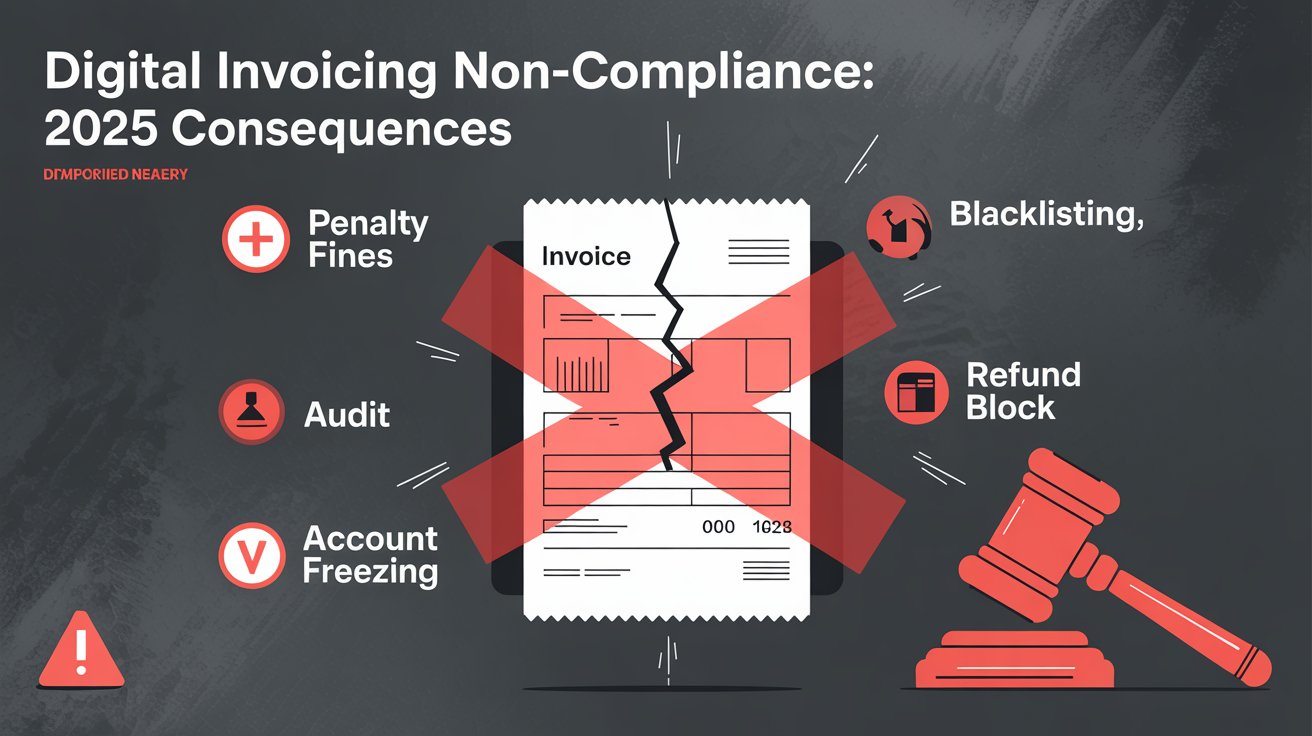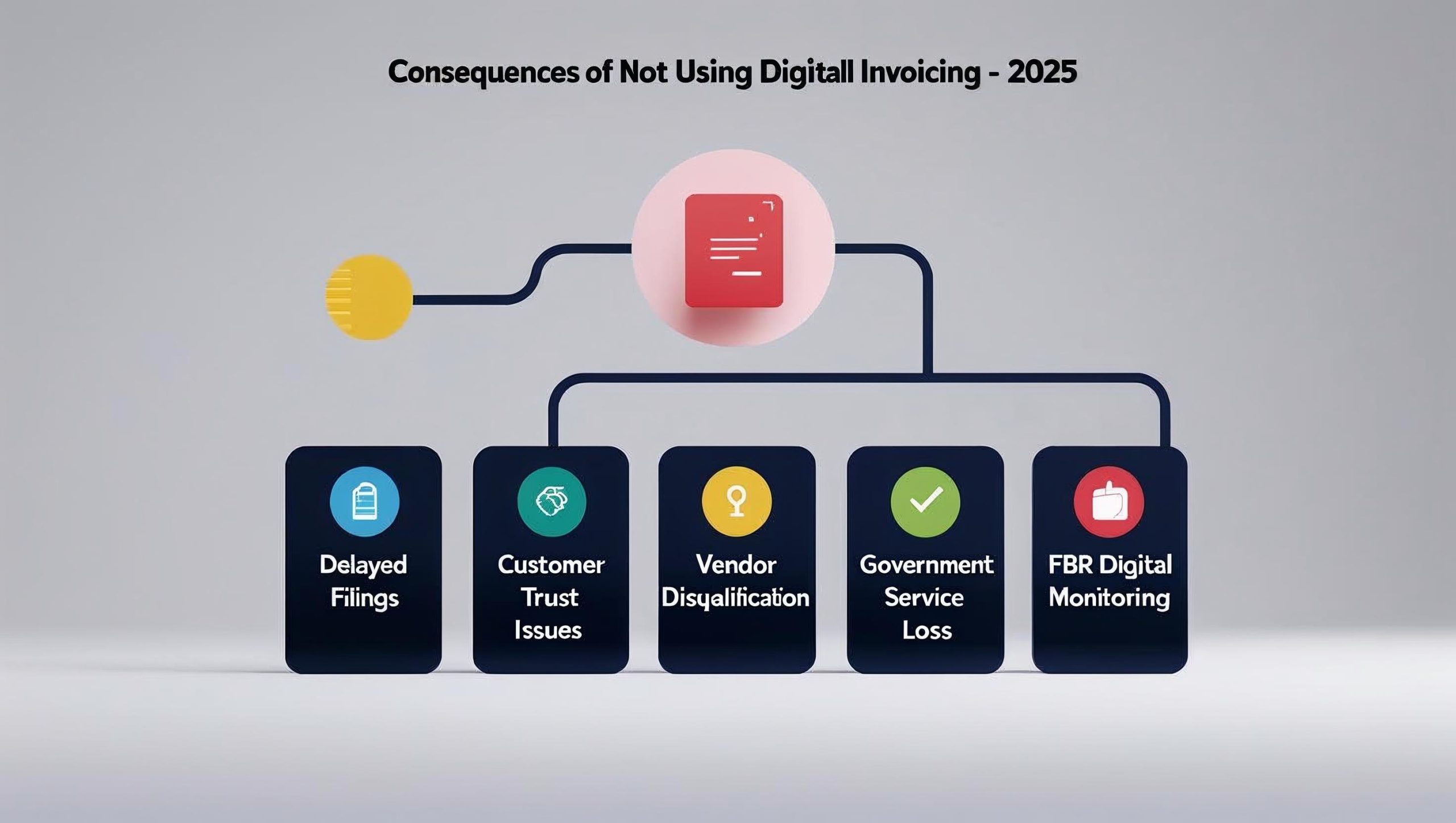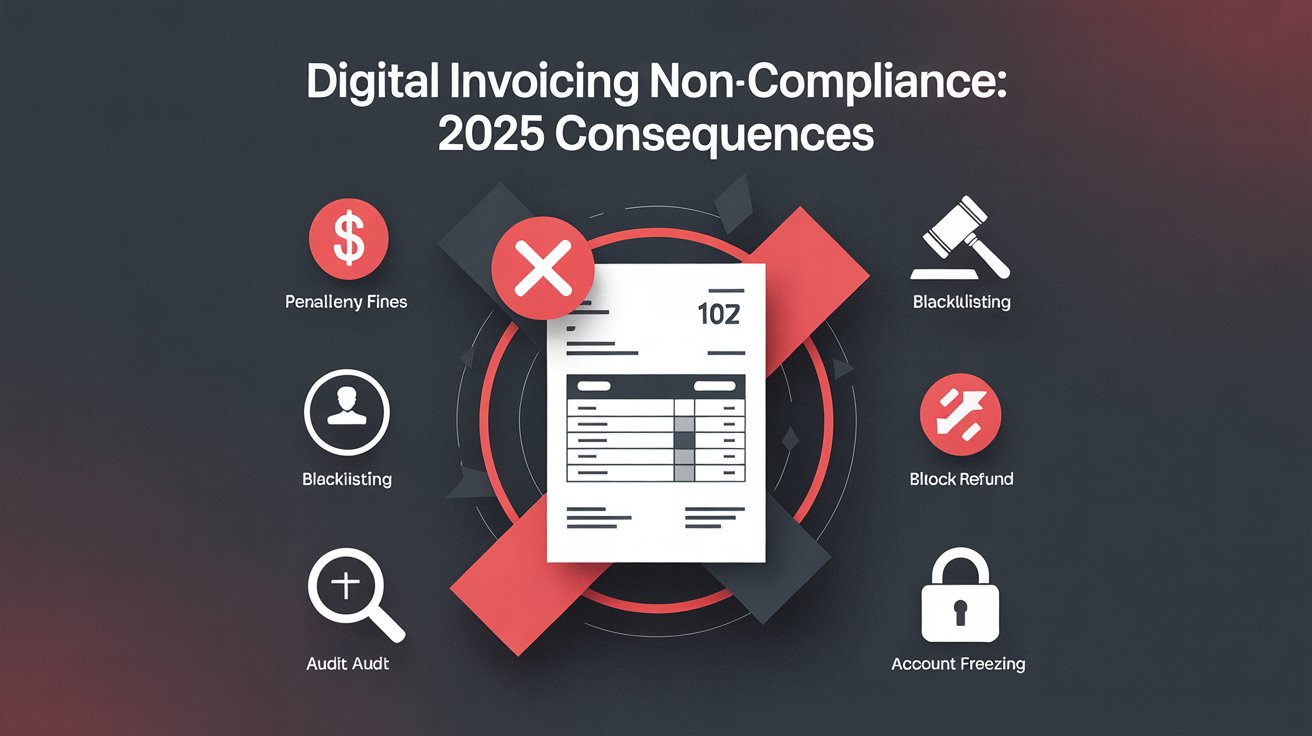Legal, Financial, and Operational Consequences of Non-Compliance in 2025
By 2025, the Federal Board of Revenue (FBR) has operationalized a system of real-time tax enforcement through Digital Invoicing. What was once an optional reform is now a mandatory legal obligation for many sectors. Non-compliance is no longer a minor administrative issue — it can result in automated penalties, legal notices, and business restrictions.
Under SRO 1005(I)/2021, SRO 183(I)/2022, and other updates, FBR has gradually rolled out mandatory digital invoicing across Tier-1 retailers, wholesalers, distributors, service providers, and manufacturers. Once a business category is notified, every business within that category is legally bound to adopt the system.
Key Penalties for Non-Compliance
- Fixed Penalties
Businesses that fail to integrate with FBR’s Digital Invoicing system may be fined up to 500,000 per outlet, as per SRO-guided enforcement policies. These penalties apply to both missing integration and failure to report invoices digitally. - Per-Invoice Fines
If a business issues invoices that are not digitally reported to FBR, it can be penalized on a per-invoice basis, regardless of whether tax was paid manually. FBR considers such invoices non-compliant. - ATL Blacklisting
Businesses not issuing Digital Invoicing-compliant documents may be removed from the Active Taxpayer List (ATL). This results in:- Higher withholding tax rates
- Ineligibility for certain contracts, licenses, or banking services
- Loss of business trust and vendor partnerships
- Suspension of Refund Claims
If input tax credit claims are not matched with DI-verified purchase invoices, refunds may be withheld or permanently disallowed. - Audit and Legal Enforcement
FBR may initiate automated audits or enforcement actions — including freezing of business accounts — if it detects undeclared sales, missing invoice records, or misalignment between declared revenue and real-time data.
 Operational Impact of Non-Compliance
Operational Impact of Non-Compliance
- Delayed Filings and Record Gaps
Without a verified invoice trail, businesses often face difficulties during monthly filing, reconciliation, or audit support. - Customer Trust Issues
As businesses and end customers become more aware of tax compliance, the absence of FBR-approved invoices may discourage repeat clients or partners. - Vendor Disqualification
Many corporate buyers and supply chain partners now require vendors to provide QR-verified digital invoices to process payments or include them in procurement. - Loss of Government-Linked Services
Certain benefits — such as utility rebates, government tenders, or import/export support — are only accessible to businesses with verified tax behavior and traceable sales records.
 Digital Enforcement is Automated and Expanding
Digital Enforcement is Automated and Expanding
FBR no longer depends on field visits or random audits to detect non-compliance. Using tools like:
- Cross-matching of electricity and internet bills
- Monitoring of digital payment inflows
- Courier shipment tracking
- Social media advertising review
…the system can identify economic activity that should be matched with verified invoices. If a business is flagged, enforcement notices can be generated and delivered electronically — with limited time to respond or appeal.
How CABCS Can Help
CABCS helps every business avoid costly penalties by ensuring full DI compliance — including invoice formatting, system integration, and staff readiness. We assist in preparing your digital infrastructure to withstand audits and maintain eligibility for all ATL-linked benefits.

